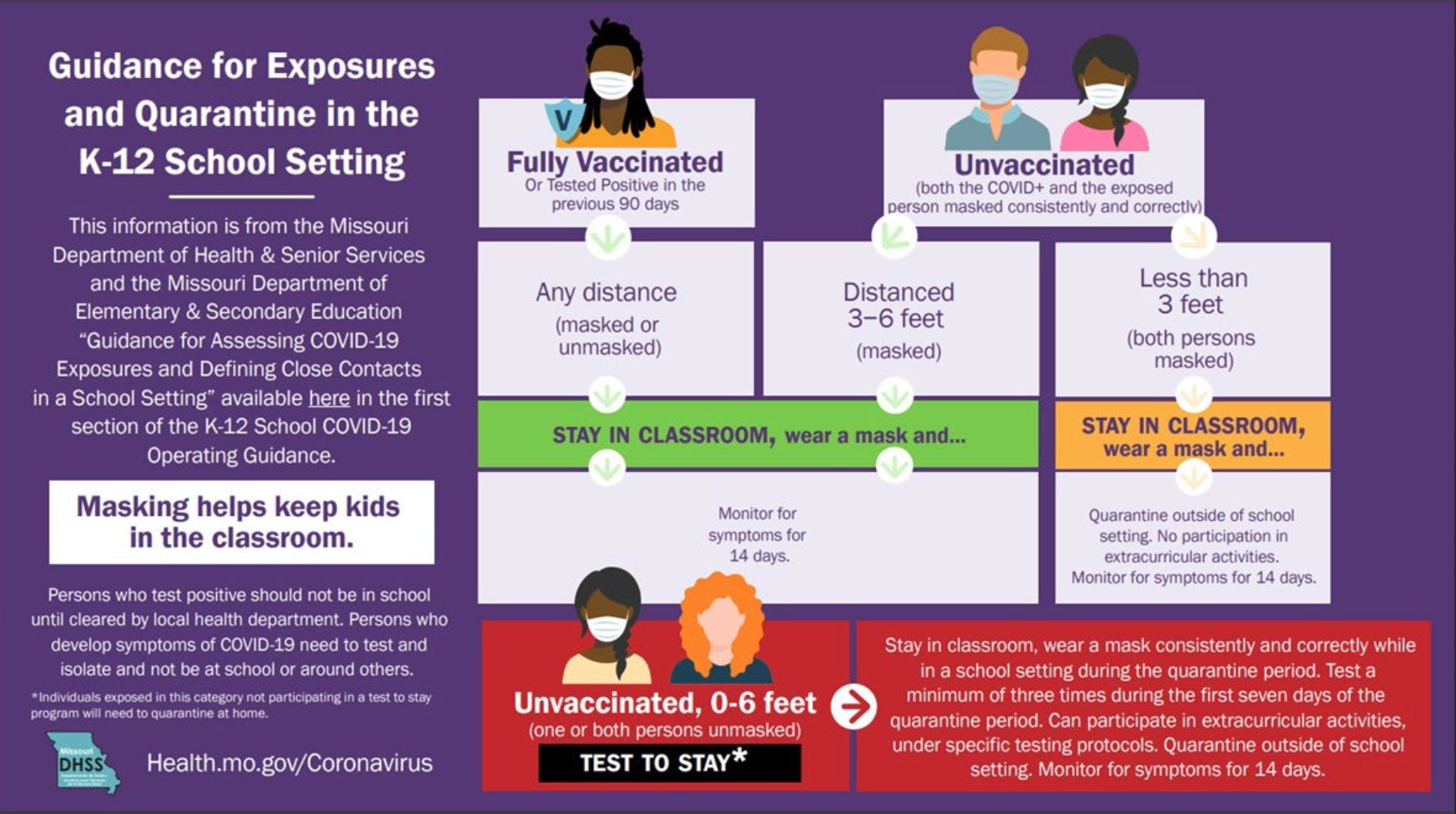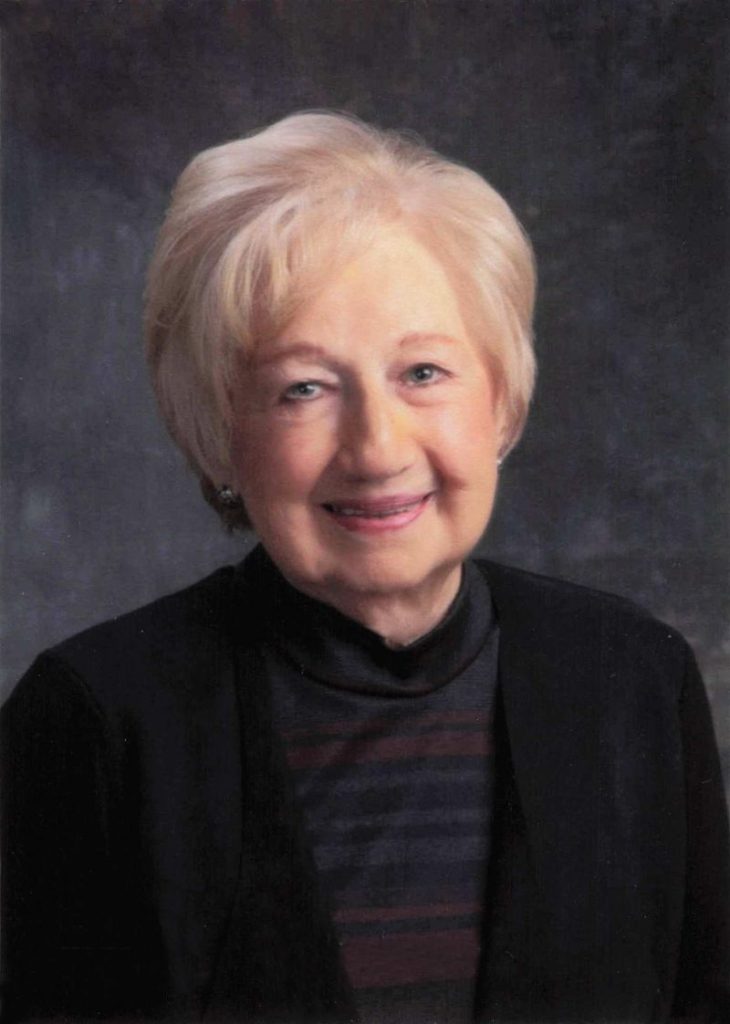Missouri students can now ‘test to stay’ to remain in classroom after COVID exposure

Missouri students and teachers identified as being exposed to a coronavirus case in school may now be permitted to remain in class if they continue to test negative for the virus and properly wear a mask.
The Department of Elementary and Secondary Education (DESE) updated its school reopening guidance Friday to include the new “test to stay” option.
The modified quarantine policy allows students who are identified as a close contact to remain in school if they don’t develop COVID-19 symptoms, continue to wear a face mask in school for 14 days after exposure and receive at least three negative rapid COVID-19 tests in the first week of exposure.
Whether to allow the “test to stay” option is ultimately at the local public health department’s discretion, and the student must not have been exposed to the virus from a member of their household, the guidance notes.
“Again, it’s still recommended for these individuals to quarantine outside of the school setting. But again, they can stay in school and participate in extracurricular activities as long as the criteria are met,” John Bos, with the Department of Health and Senior Services, said during a webinar Tuesday where DESE and state health department officials answered school districts’ questions.
Department of Health and Senior Services Director Donald Kauerauf told The Independent late last month that the revised quarantine model was one the state was evaluating “that allows kids to stay in school.”
“A routine Test to Stay quarantine response protocol, with daily testing in an environment where masks are consistently used, has been shown to be generally equivalent to quarantine for school-based contacts, and a safe alternative to at-home isolation,” the state’s school reopening guidance reads.
A growing number of schools nationwide have implemented the modified quarantine policy that relies on regular testing. However, it’s not endorsed by the Centers for Disease Control and Prevention, which notes on its website that when it comes to allowing close contacts to stay in school it “does not have enough evidence at this time to support this approach.”
Under the new “test to stay” option, a student would need to test negative when identified as a close contact, and then receive a minimum of two negative COVID tests results in the first week of exposure. Preferably, the follow-up tests would occur on two non-consecutive days of the school week, for example on a Wednesday and Friday.
If a student is participating in extracurricular activities, like sports, daily testing is recommended. At a minimum, a rapid antigen test should be taken on the day of the extracurricular activity, the state’s guidance notes.
The new quarantine option comes after the state first announced last November that it would be relaxing the CDC’s 14-day quarantine guidelines and allow students and staff who were in close contact to not quarantine if both individuals were wearing masks “appropriately” at the time of the exposure.
Currently, students, teachers and staff identified as close contacts are also not required to quarantine if they are fully vaccinated and don’t develop symptoms or have had COVID-19 within the previous three months and have recovered, state guidance notes.
If a student does not meet the guidelines for those options, they must quarantine at home for the full recommended 14 days.
When asked if districts may use other quarantine options not outlined by the state to keep unmasked, unvaccinated students in class, Kauerauf shot down that request.
“We are constantly looking at additional options that we can roll out,” Kauerauf said during Tuesday’s call, “but we are comfortable with currently the four options we have.”
The state has directed schools to a screening testing program it’s launched backed by nearly $185 million in federal funds. The program, being operated by Ginkgo Bioworks Inc., a Boston-based biotechnology company, has seen a slight uptick in schools participating since the start of the school year.
As of Tuesday, 17 school districts were participating, or 68 schools overall, according to the state’s dashboard — a tiny fraction of the more than 500 districts and charter schools in the state.
Schools can also order rapid antigen tests from the state health department, and supplemental funding is offered to districts participating in either testing option.
Mallory McGowin, a spokeswoman for DESE, said during Tuesday’s webinar that there are “constrained supplies” of the rapid antigen test cards, and urged schools to request only the number of test kits they need for two weeks at a time. Increased demand for rapid COVID tests in recent weeks has caused a shortage of supplies nationwide.
According to the state’s dashboard, 379 schools are currently receiving rapid antigen tests from the state, with a total of 179,634 shipped.
Miss Clipping Out Stories to Save for Later?
Click the Purchase Story button below to order a print of this story. We will print it for you on matte photo paper to keep forever.

